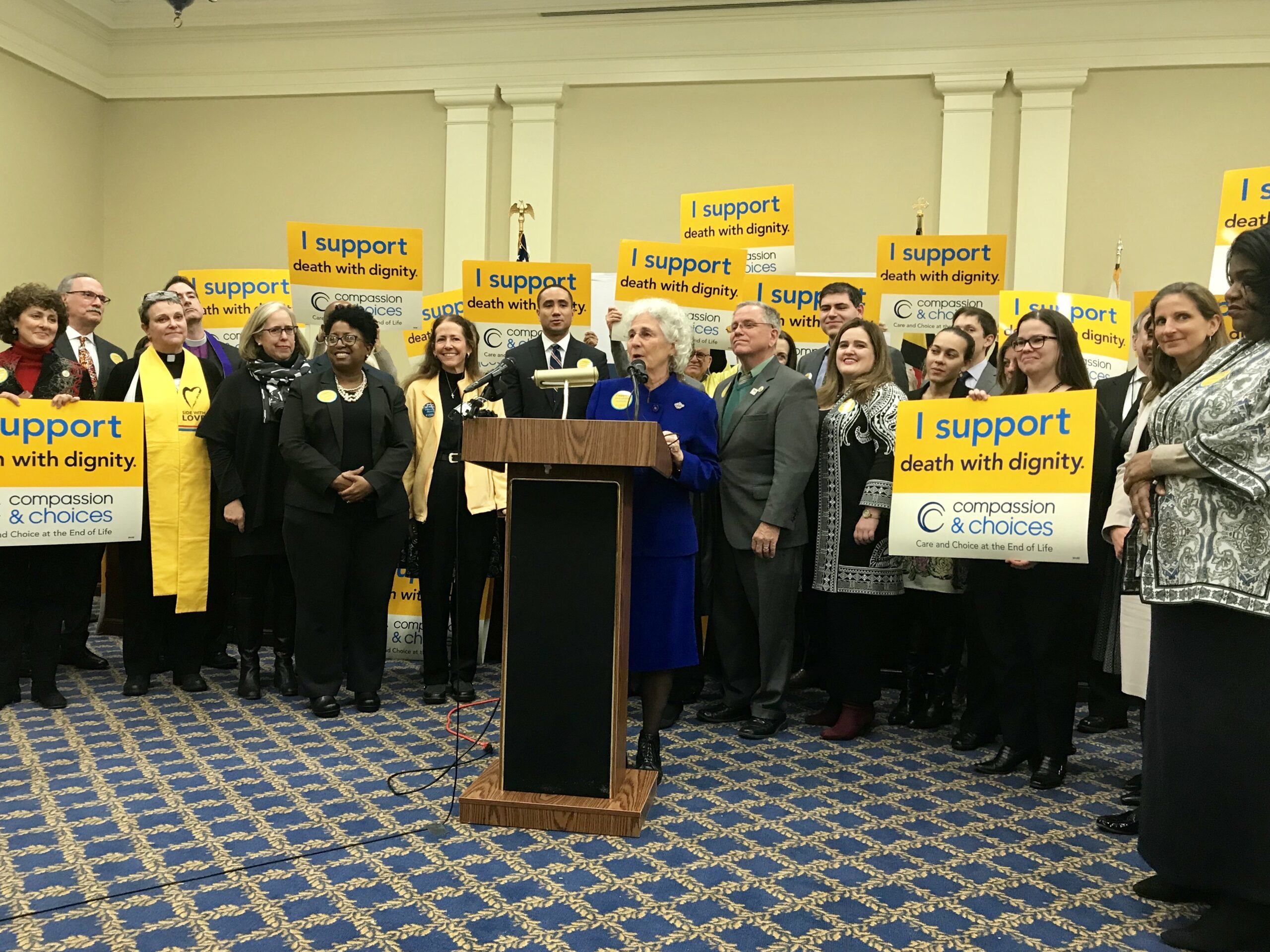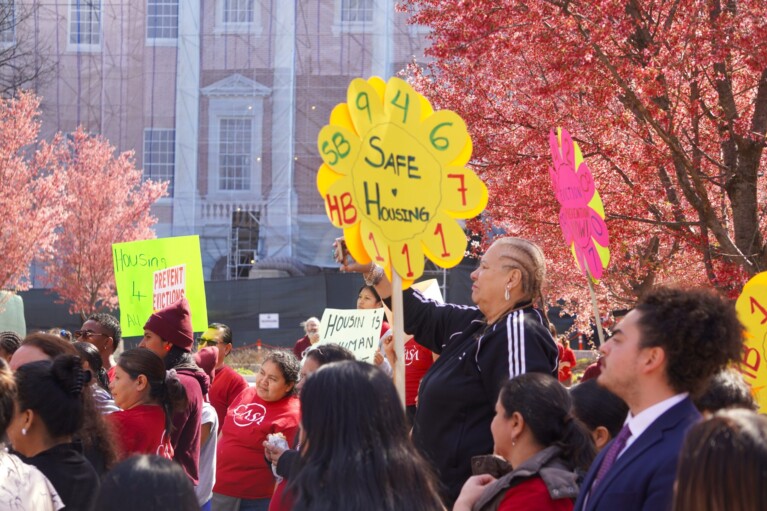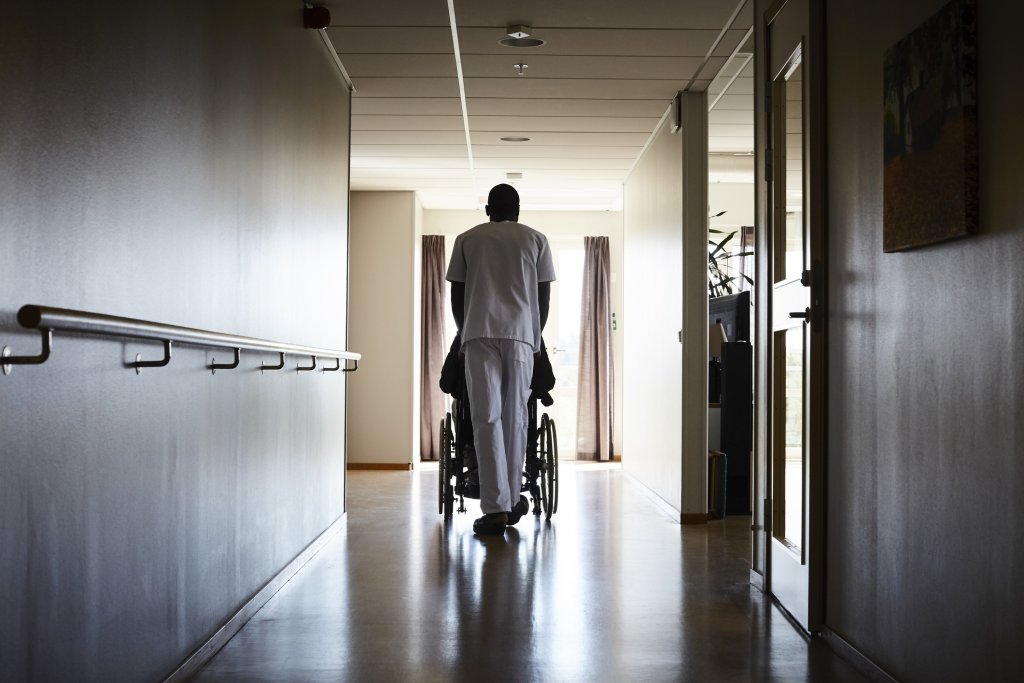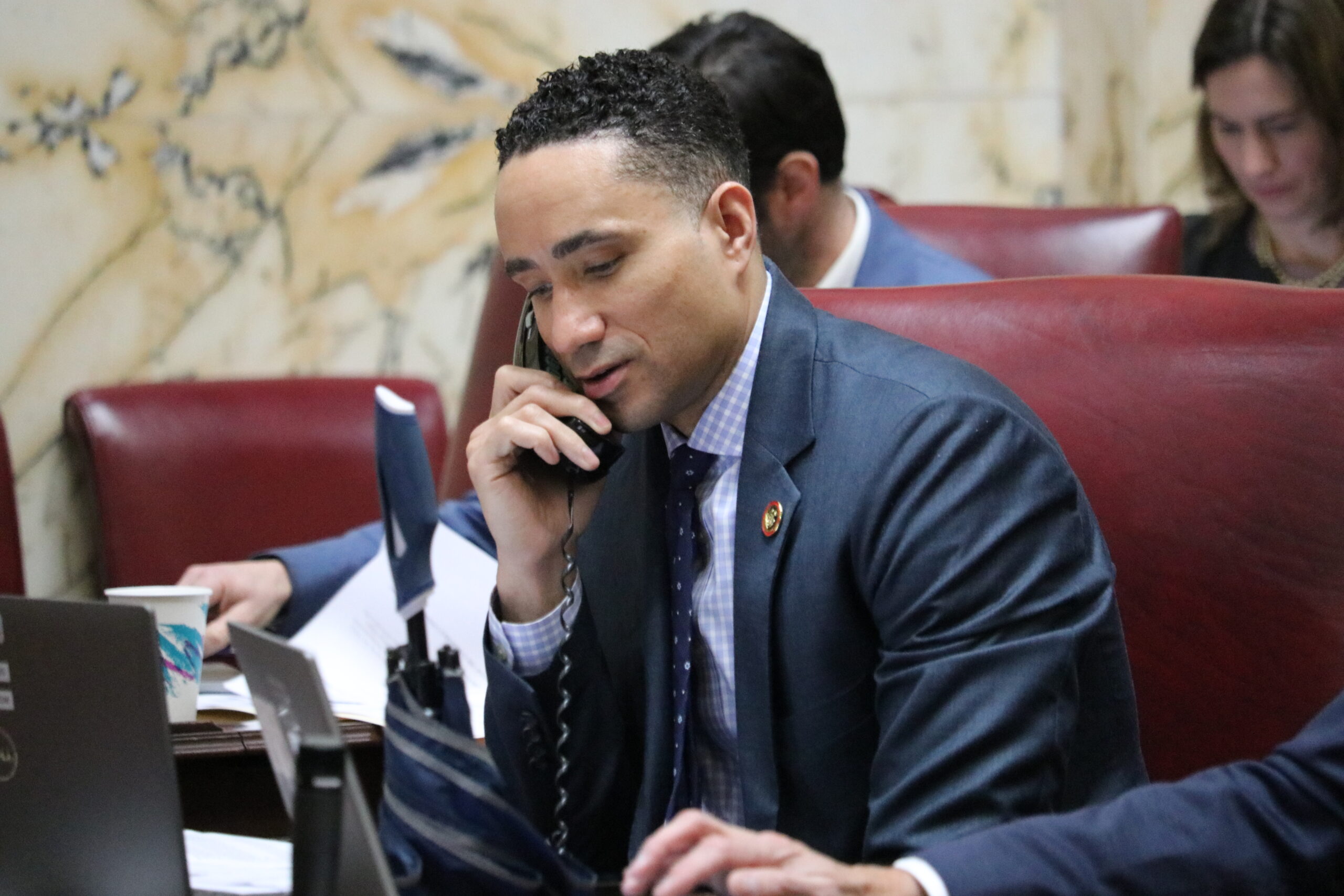
Lawmakers and advocates are pushing for a “death with dignity” law for the fourth time in recent years – and this time they think the bill stands a better chance of passing out of the General Assembly.
The End of Life Option Act will be considered in a General Assembly with newly configured judiciary and health committees and in a year where a wave of new, progressive lawmakers have taken office. The 2019 bill is said to have support from 48 House cosponsors and 15 in the Senate.
The text of the bill was not available Tuesday and has not yet been introduced. The measure will be chiefly sponsored by Sen. William C. Smith Jr. (D-Montgomery) and Del. Shane M. Pendergrass (D-Howard), both of whom have worked on the issue for years.
Year after year, the bill has attracted dozens of sponsors, but faced opposition from key lawmakers and some powerful lobbies in Annapolis.
Smith noted on Tuesday that MedChi, the state’s medical society, has adopted a neutral stance on the bill after initially opposing it. The MedChi resolution detailing the organization’s shift in stance includes references to polls indicating majority support for aid-in-dying among Maryland residents and Maryland physicians.
Other supporters of the bill include the ACLU, Maryland Libertarian Party and United Church of Christ.
On Tuesday, lawmakers after listening to years of testimony by those opposing the bill, said the forthcoming legislation will be amended to address some of those concerns.
The bill would allow mentally competent adults who live in Maryland and are suffering from a disease likely to kill them within six months to secure lethal doses of medication from their physicians. Before a doctor could write the prescription, a patient would have to make three separate requests for it, including one in writing, signed by two witnesses. The patient would also have to discuss their decision one-on-one with a doctor.
Physicians and pharmacists are not required to take part in writing or filling a prescription, but must transfer all medical records upon a patient’s request.
“This legislation does not minimize or detract from the compassionate work of hospice providers. It does not interfere with doctors’ and nurses’ efforts to provide pain management and other palliative care,” Pendergrass said. “Instead, it offers a measure of control. It offers peace of mind. We can’t change someone’s prognosis, but we can let patients decide, if they wish, the time and place for a peaceful death.”
The bill also specifies that the cause of death for patients who use the medication will be deemed as “death from natural causes.”
Once introduced, the bill will face opposition at hearings.
Shortly after Tuesday’s news conference, Jennifer Briemann, executive director of the Maryland Catholic Conference, issued a statement outlining the organization’s continued opposition to the bill, which is supported by Compassion and Choices a group based in Colorado.
“Our state has repeatedly rejected this group’s agenda and with good reason: assisted-suicide threatens Maryland’s most vulnerable, putting those with disabilities, the elderly, our veterans, and those battling opioid addiction at grave risk,” Briemann said. “As Catholics we stand firm with our partners across the state to strongly oppose this proposal.”
Washington, D.C., and seven states have authorized medical aid in dying. In 1999, Maryland became the 38th state in the country to outlaw physician assisted suicide, part of a national response to the highly publicized work of Dr. Jack Kevorkian, who assisted in the suicide of a Michigan man suffering from amyotrophic lateral sclerosis.




 Creative Commons Attribution
Creative Commons Attribution